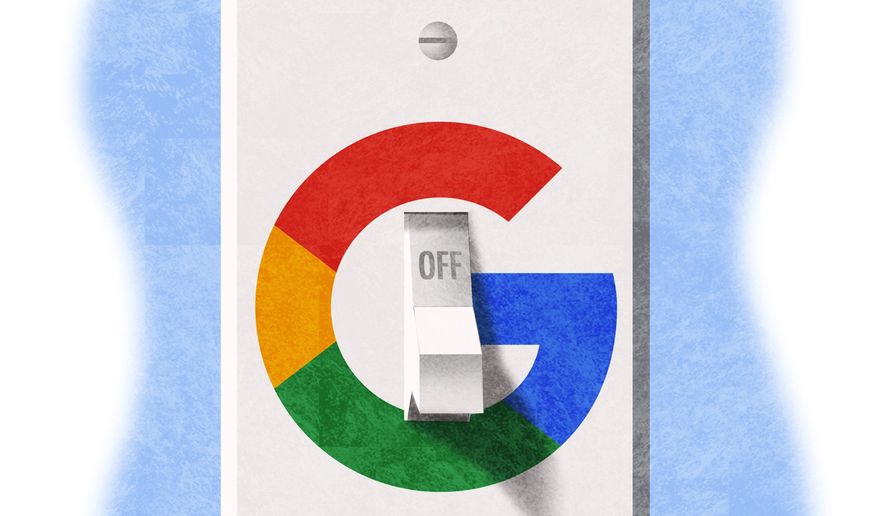OPINION:
A couple of weeks ago, Google came out with a manifesto on electricity and all the changes they plan to advocate for in the electricity industry. Some of them are not good.
Let’s start with the most telling thing about the document. In 35 pages, it mentions reliability in passing only a handful of times. That’s odd, given that reliable electricity is the basis of our civilization and the sine qua non of any energy discussion.
For instance, in the last few weeks, those who operate the electricity systems in Texas, California, the Midwest and the Southwest have all warned that blackouts are likely this summer. The Wall Street Journal conducted an analysis recently and concluded that were 180 sustained blackouts nationwide in 2020 compared to about two dozen in 2000. So, things aren’t getting better.
You think Google might have focused on that and led with something about reliability.
The manifesto also managed to avoid the word “affordable.” Again, that’s a pretty big omission, given that affordable electricity is crucial to the American economy and to American families. It is especially telling given that electricity is getting more, not less, expensive. In the last 20 years, retail electricity prices in the United States have increased from about seven cents a kilowatt-hour to more than 11 cents a kilowatt-hour. That’s about a 60% increase.
So, the electricity system is getting less reliable and more expensive. Yet our friends at Google don’t really address either of those problems. They do spend a lot of time talking about “cost-effective” energy. Here’s the problem with that: “low-cost” and “cost-effective” are not the same thing.
Speaking of costs, it will shock no one to discover that Google is in favor of consumers paying an energy tax (described as a “carbon” tax). They are in favor of making electricity more expensive for everyone — the poor, the elderly, those on fixed incomes, local institutions like school and hospitals — everyone.
Think about that when Google talks about “cost-effective” energy and the transition of the grid and whatever. There is no less cost-effective way to address whatever problems you think global warming might cause than the imposition of an energy tax.
What sort of electricity future does Google have in mind? Well, it seems enamored of the European approach, noting, “The European Commission has proposed a goal to bring renewable energy to 40% of its energy mix by 2030.”
How’s that going so far? Well, electricity generation from wind dropped off the table last year, especially in Germany. That required the Europeans to burn more natural gas to generate electricity, which in turn meant that natural gas prices all over the planet have surged, as the United States and other countries have had to ship liquefied natural gas to Europe to cover the shortfall.
It has meant that Europe has been unable to reduce imports of natural gas from Russia, which means, as a practical matter, the Europeans are funding both sides of the conflict in Ukraine. It also means that prices for fertilizer — whose chief ingredient is natural gas — are soaring worldwide. Food prices will increase as well, which will lead directly to hunger and famine in Asia and Africa.
That’s a lot of devastation that could have been avoided if the Europeans had been realistic about energy. It’s a cautionary tale about taking people who are indifferent to the fundamentals of energy (like Google) seriously.
if you can’t turn something on and off — like wind and solar power — you don’t control it. The electricity system ultimately has to rely on sources of energy that we control — that we can turn on and off, like coal, nuclear and natural gas.
The solution to the challenges of reliability and cost are pretty straightforward — build more reliable power plants that generate electricity on demand, probably primarily from natural gas. But that solution doesn’t make outfits like Google any cash, nor does it allow them to signal their virtue.
What does Google really want here?
Do they want to socialize the costs of their virtue signaling? Probably. Do they ultimately want access to data about when and how much electricity you use? Probably. Are there some other reasons we do not yet see? No doubt.
We do know that when dealing with oligarchs, caution is always in order. When a company worth $2 trillion with hundreds of lobbyists wants to get involved in something as essential to your life as electricity, it is probably wise to pay attention.
• Michael McKenna is a columnist for The Washington Times and co-host of “The Unregulated” podcast. He was most recently a deputy assistant to the president and deputy director of the Office of Legislative Affairs at the White House.




Please read our comment policy before commenting.